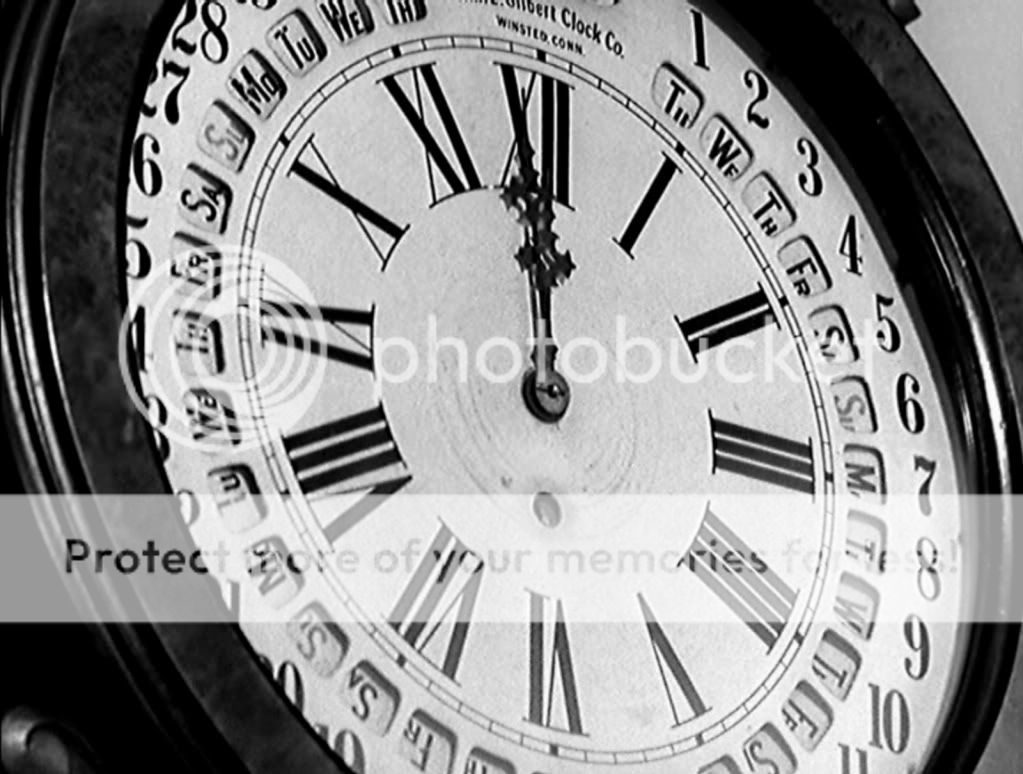The Cinema of Carl Dreyer (1971) is the title of a still worthy and illuminating book on the cinema of Dreyer, by
Tom Milne (1926-2005). Milne, who has undeservedly remained unknown outside Britain, was a writer for
Sight & Sound, the
Monthly Film Bulletin,
The Observer and
The Times. His writings on film show an incredibly clear mind and a very functional method of putting his thoughts on paper. Milne's directness in his text about Dreyer can only be compared to the purism of the filmmaker himself. He writes about
Ordet:

"[The] opening sequence roots the film firmly in reality with its shots of the farmstead and its naturalistic picture of a household reluctantly awakening in the middle of the night; but the sense of dépaysement is as total and as disruptive as it was in Vampyr. Partly, naturally, thus occasioned by Johannes's madness, but even more by the sense of void that surrounds this limbo of darkness where sheep bleat but none are seen, where there is no the sign of human habitation, where in fact nothing seems to exist outside this little enclave of humanity living in a country of the mind. This is simply an impression, of course, but it is furthered during the course of the film by the oblique sense of confinement, of limitation, that Dreyer convoys in all his exterior scenes.
No sense of landscape or the seasons, no sense of community life. It is as though Dreyer were illuminating the curious semi-symbolic scene where Johannes suddenly lights a pair of candles and places them in the window - Inger quietly replaces them on the dresser since it is broad daylight - "That my light may brighten the darkness.
With Ordet, one also believes completely in the reality of this family, their love for each other, their roots in the land they live in; but at the same time those roots disappear into a strange soil which is beyond reality so that the miracle of Inger's rebirth is both less and more than a miracle."

Interestingly, Milne disapproves Johannes character in
Ordet. As for the cultural differences that lead to various interpretation of the story, I have to say, as someone who discovered
Ordet in his teens, and urged other friends (from Iran) to see it, I don't remember anybody explaining Johannes's character as unconvincing. To my amazement, most of the spectators, at least those whom I've talked to, see Johannes as a modern time saint, even before the miracle occurs in the film. That could be something related to the different modes of reception (UK and Iran, in this case), but when Mr Milne calls Johannes "the weakest part of the film," that sounds more like an intellectual disagreement, and a big one.
It is true than unlike the Munk's play, or reportedly, the first cinematic adaptation of the play in 1944 by Gustaf Molander (which I haven't seen), Johannes is decentralized in Dreyer's drama. But I strongly believe it is this marginal character who defines the inner momentum of the film. If the landscape or dialogues are melancholic, mysterious, and in my view, deliberately dream-like, it is as if film's been narrated from the point of view of Johannes. Isn't he the character who Dreyer feels closest to? Since the presence of sacrificial and powerful earthly women is so overwhelming, it is hard to reach a certain conclusion.
Johannes remains an enigma, throughout the films, after seeing the film, and almost in all the theoretical analysis I've read about
Ordet. The way Johannes behaves, explains how the film and its mise-en-scène should be constructed.
Ordet, thank heavens, has a extended run at NFT. (check out the screenings on
BFI site) If you haven't seen
Ordet yet, catch up with one of this screenings. If you've seen it previously, but only on DVD, you need to study the faces of the farmer family on big screen. Those sad eyes of Johannes should be as big as a Vilhelm Hammershoi painting to be "seen" properly.
18 Mar (18:00 & 20:30)/19 Mar (17:50 & 20:20) /20 Mar (18:10 & 20:45)/21 Mar (18:00 & 20:30)/22 Mar (18:00 & 20:30)/23 Mar (18:00 & 20:30)



